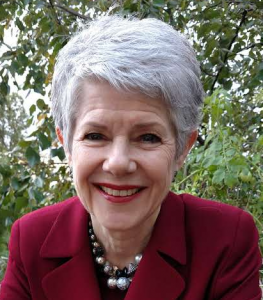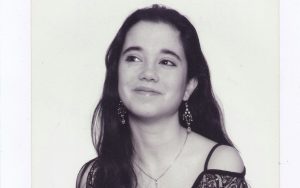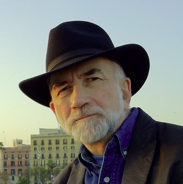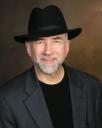About
Jonathan Cloud December 4th, 2006
| “An unexamined life is not worth living.” (Socrates) |
UN Environment Award, received 1985. |
 |
February 10, 2019: This site was one of the first that I put together, nearly two decades ago, and has rarely been updated over the years. I hope to get back to it at some point, and remove much of the obsolete (and sometimes embarrassing) material, but I’m keeping most of it because it records some of the important elements of my life and reflects some of the evolution of my thinking. In the meantime, here’s a brief updated biography:
I was born in Washington, DC in November 1944—which I think of as “near the end of WWII,” though of course at the time it was not at all clear how or when it would end. (Thanks to Wikipedia, I now know it was a Saturday, and was the day of the worst V-2 attack of the war, that killed 168 people at a Woolworths, in South London.) My father was at the time City Editor for the Washington Post, and my mother was head of the now-defunct nonprofit Washington Housing Association, a tenants-rights group that mainly focused on going after slum landlords. The story I was told was that when my mother returned home with me from the hospital (did she drive herself to the farmhouse in Maryland, I wonder, with me in a basket?), she found my father in bed with another woman, threw him out, and was divorced from him six months later.
I rarely saw my father when I was growing up. He was rapidly going down hill, drinking constantly, trying to con other women into sleeping with him and supporting him, and being demoted to the Baltimore Sun, after which he was let go and left the state in order to avoid paying child support. I never saw or heard from him again. I presume he went back to California (he was born in Redwood City), and died of cirrhosis of the liver. He was older than my mother, who was already 40 when I was born, though I don’t know by how much. I spent my early years growing up on a farm between Laurel and Ellicott City in Maryland, and as soon as I was old enough being dropped off at the Cahall School, a private residential school for emotionally-disturbed children) early, and picked up late by my mother on her way home from work in the city.
I don’t know if I was myself considered an emotionally-disturbed child, or if it was just a matter of convenience, as my mother assured me later, but it was the scene of my earliest memorable experiences, which were mostly vaguely sexual and to my juvenile mind traumatic, the most significant of which involved my sister, Joyce, who was twenty years older than me and then one of my teachers at the school. It was a matter, I hasten to add, in which she was completely blameless, since I egged her on until she finally had to take me out of class and try to punish me. I was surprised and hit back at her, punching her in the stomach. She left the school soon after. This incident, which likely happened when I was seven or eight, has of course continued to impact me throughout my life.
My mother and I left the United States when I was nine years old and went to live in Mexico. This was at the height of the McCarthy hearings, which impacted many of my mother’s socialist and communist friends. I don’t think she feared for her own safety, but found it so oppressive and depressing that she did something she had never contemplated, which was leaving the country.
Many adventures later (some of which I plan to recount at another time), I returned to the U.S. with my own family (this was around 1991 or 92) and settled in New Jersey. The rest, nearly the past thirty years, has been devoted to finding a way to make both a living and a difference, the former rarely successful and the latter still marginal, as the leader of a largely unknown but globally ambitious nonprofit, Possible Planet.
The rest of this page is more than a dozen years old,
December 4, 2006: Sharing our lives has in never been easier, and never more difficult. The Internet allows each of us to become a broadcaster – to share our ideas, experiences, and passions with the rest of the world. On the other hand, the “creative disruption” of our social environments, by technology, by ideology, and by the unresolved conflicts in the global village we now live in, means that there is no longer a shared reality within which our lives unfold.
As the Bush Administration originally claimed, we are free to fabricate our own reality – providing we’re willing to live with the consequences. In Bush’s case this has not worked out too well, either for him or for the world; but we can clean this up if we’re willing to. The more important point is that we do have real moral and practical choices, that dictate the course of our own lives and sometimes that of others.
Take wealth, for example. It’s clear that wealth is a choice (or set of choices) in the context of real circumstances. Particular ventures may or may not pay off; but without the mindset we will never strive for financial success, or be prepared to embrace it. Without the right attitudes, and the determination to reach our goals, we will not take the risk of total commitment, or make the changes necessary to allow success to enter our lives. As long as we consider material success to be “unworthy,” we will unconsciously sabotage ourselves, because it is more important to us to be good in our own eyes than to be successful.
But if we create our worlds, why is it that so many things do turn out poorly, like the war in Iraq? The fact is that while we’re creating our worlds, others are creating theirs, and we share a common habitat. Human conflicts are the outcomes of the negative intersections – where it seems that our worlds are incompatible, and only one interpretation or set of choices can be allowed to stand. For George Bush, Saddam’s world could not be tolerated, and removing it was worth the lives lost, the chaos, the dissipated treasure.
The same is true for many of us in our personal lives. We get into conflicts where something in our world collides with something in the worlds of others: our gods, our economic interests, our political ideologies, our sexual desires. Overcoming conflict requires that we reconcile these interests, or agree to tolerate the other’s existence on the same planet, or are evenly matched and subject to mutual annihilation. And failing to overcome conflict, we may find ourselves facing planetary challenges that we cannot overcome without collaborating.
===============
It will be clear even to the casual reader that my political views are somewhere near the progressive end of the Democratic Party. Though I wish to speak to audiences of all political persuasions, I make no apologies for this. My views are carefully considered ones. I am happy to defend their logic and their humanity, and I challenge anyone on the right or the left to debate whether I have come by them fairly and have some rational basis for them. I don’t deny others the right to hold other views, and I don’t know whether they are right or wrong unless and until I have fully examined them. But I believe that the views that I hold are consistent with a better world for everyone, and therefore I do not need to spend much time defending them.
The issue is rather how to act in the world as we encounter it. Marx said that men make history, but not under circumstances of their own choosing. Today we may even be able to choose many of our circumstances (at least the privileged can), but the problem of acting on the basis of a greater awareness remains a challenging one. Men make history, but they do so for most part unconsciously and shortsightedly. If they believe God is personally guiding them, they may be dangerous lunatics. But if they do not experience the universal force of life within they are no more than clever animals.
My larger goal, therefore, is to raise the possibility that humans are still at any early stage in their evolutionary cycle. They represent the earliest, most primitive form of conscious life, and for the most part their views remain limited and distorted ones. There is greater wisdom, and greater humility, in assuming that future generations will look back on us as having a very rudimentary grasp of reality and of our role in it – and therefore being willing to transcend our present consciousness in order to become more fully ourselves (and perhaps survive longer as well).
===================
Recent photos:





